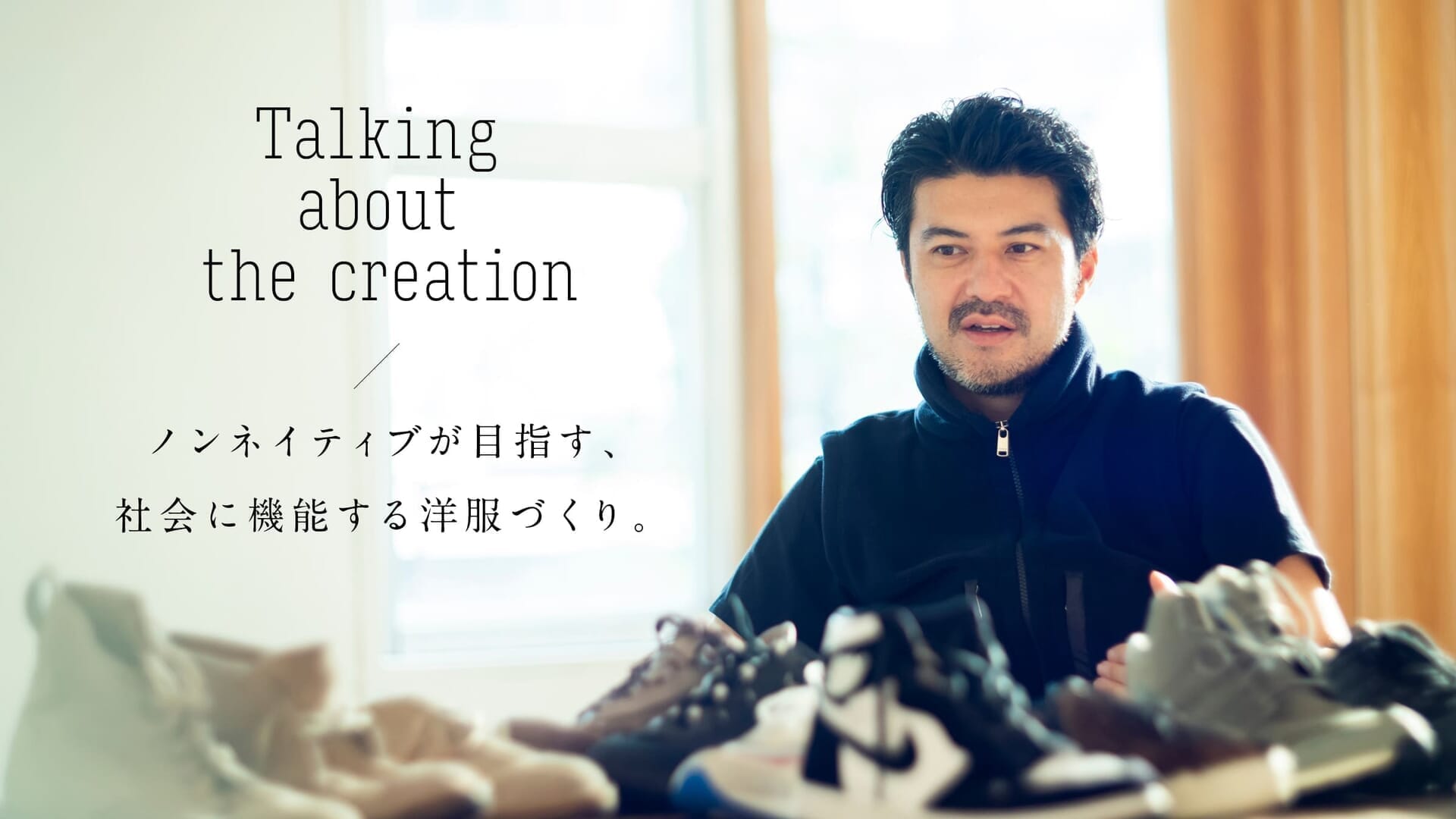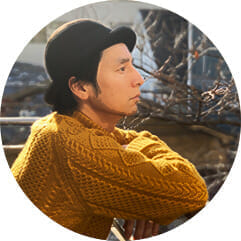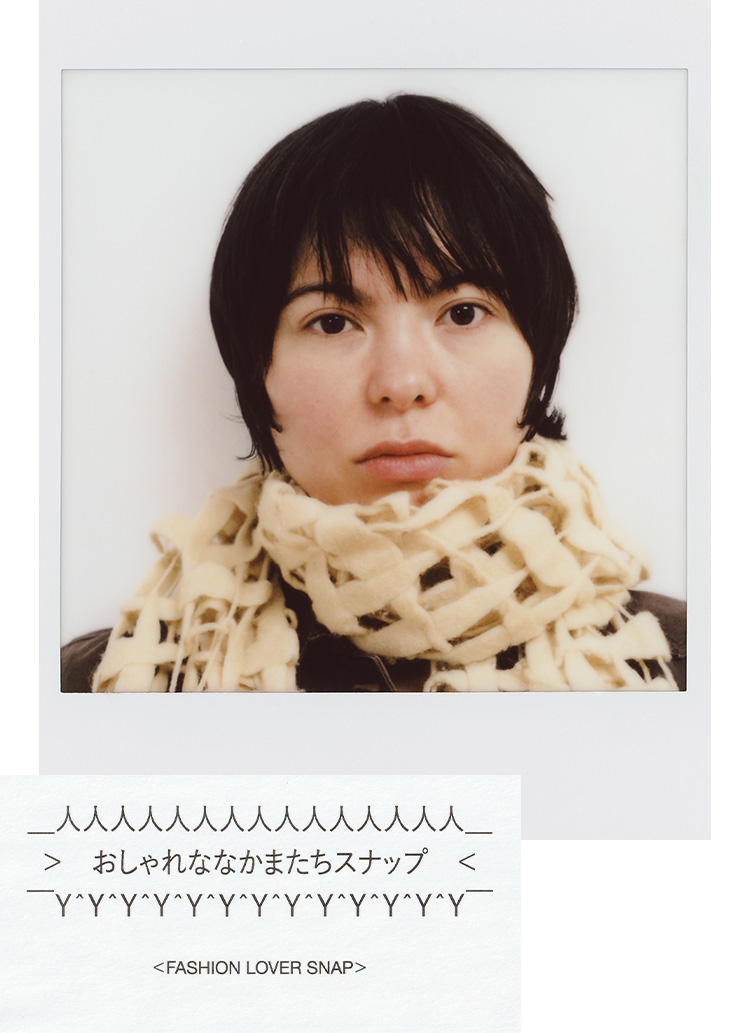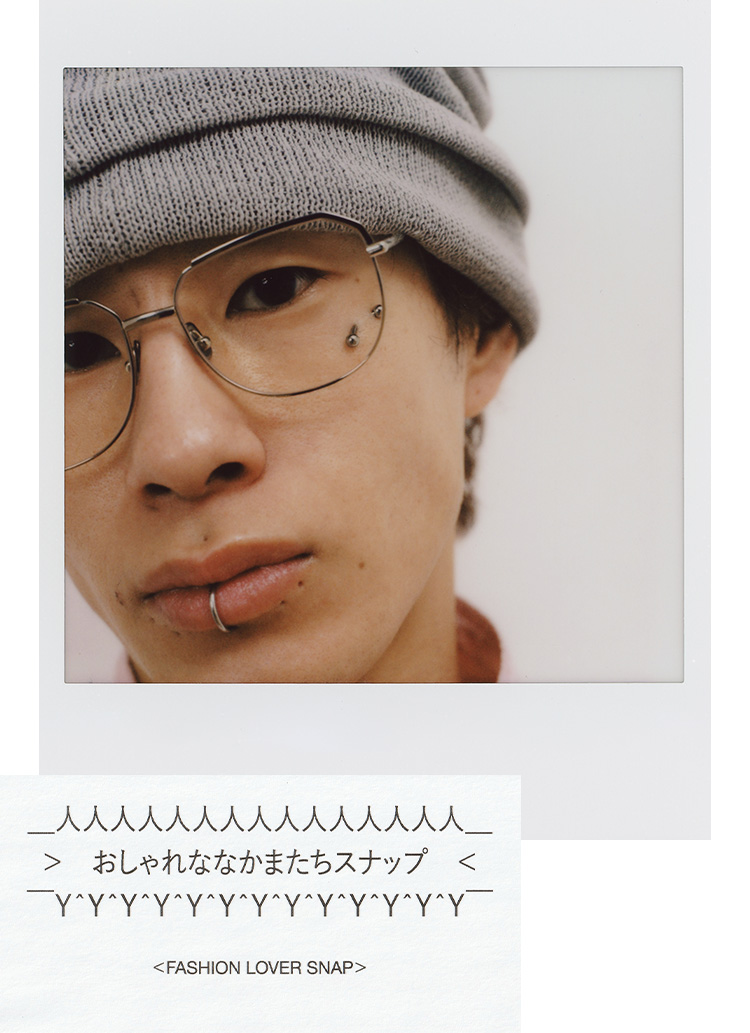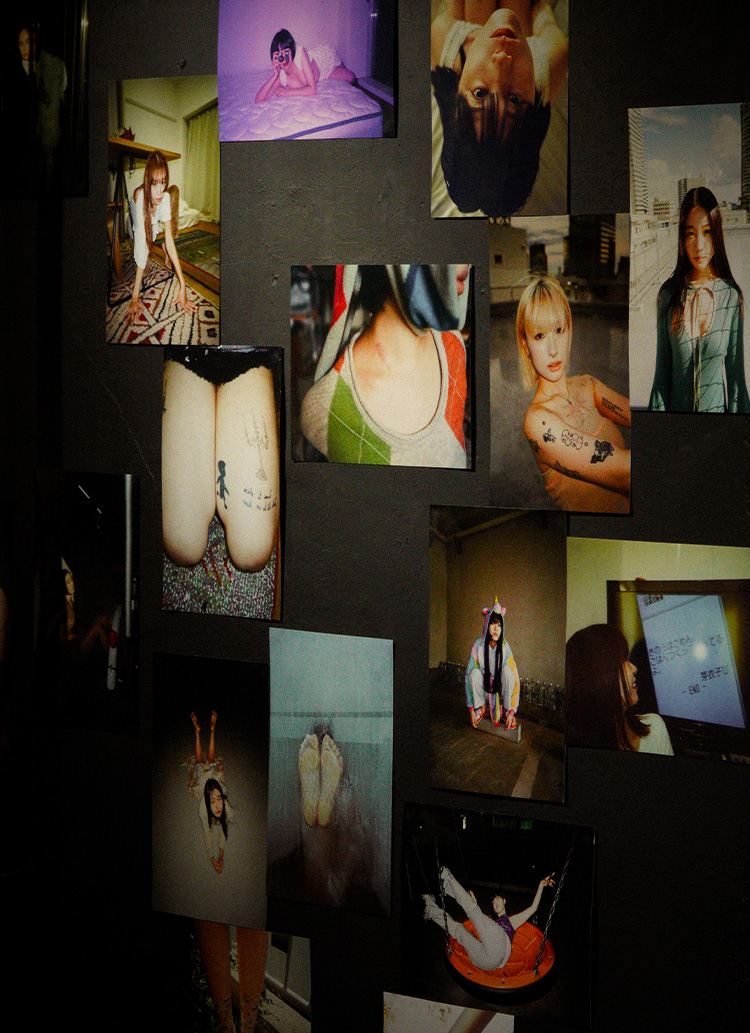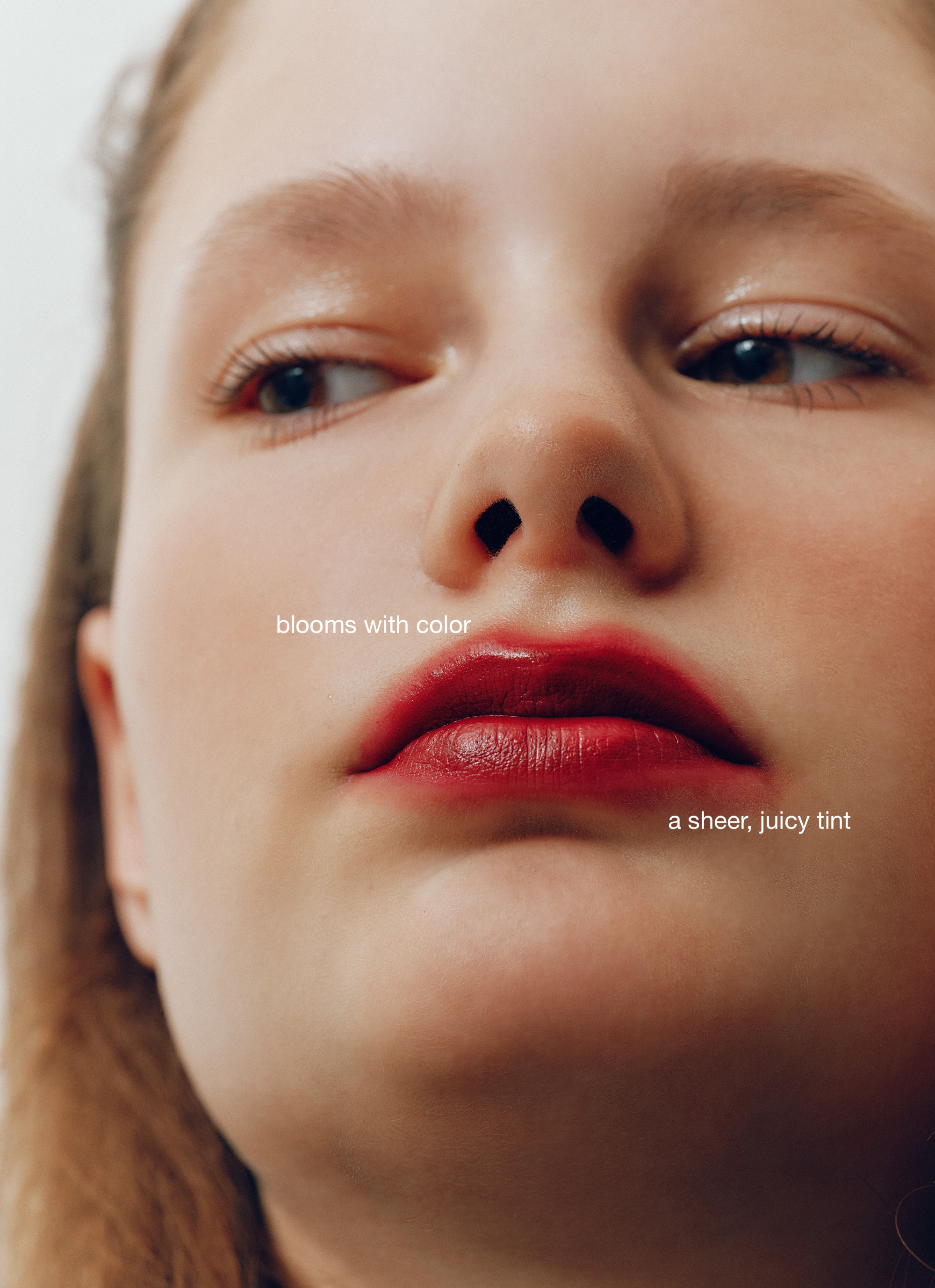The function of clothing, it is a social and
It means to be connected.
K.F.: Until the 2018 SS season, you had been traveling and presenting collections inspired by your travels, but in your recent creations, you have been confronting your clothes without going on trips. In addition, you have shifted to not having a clear collection theme.

Fujii:Since concepts and themes are what cover the outside, I am thinking of going through the clothes that are inside, without relying on words. Right now, I want to focus on bringing out my inner feelings and what I have accumulated. For example, the feeling I get from watching movies and dramas on Netflix, such as "Stranger Things," is similar to the excitement I used to get from watching "Back to the Future" when I was younger. I think that if there is a theme to express such pure feelings in fashion, it might get in the way. In the case of a magazine, all of the contents would seem to be a feature with a single theme. I felt that narrowing down the theme might limit the range of people who would wear the clothes, and it was also a way of thinking about how to make the magazine accessible to a wider range of people. But I may return in a different form.
I think the position of "non-native" is unique. You have not tried to meet the needs of the market, but have proposed tapered pants, ankle-cut pants, and ribbed pants, which were rare at the time, and by gaining support for these new styles, you have continued to embody "not belonging anywhere," which is exactly what the brand name implies.
Fujii:The factor of making something because people are wearing it or because it is popular interferes with one's own craftsmanship. Japanese people tend to choose restaurants after having others taste the food or looking at "food logs. In other words, I believe that Japanese people lack confidence in their own sense of taste. This is especially true when it comes to fashion. I guess if you endure the concept of wanting something because it is sold out, you will end up like me. I like Supreme too, but most of the items I like are not sold out (laughs).
I see. I have the impression that you have faced up to what you can do and what you cannot do, and have drawn a firm line between the two.

Fujii:For example, I don't have an axis of making clothes from threads, nor do I intend to design with a logo. But even though the current fashion situation is not in the direction I like, it is important for a business to know how to respond to it. So, it doesn't make sense if it doesn't sell well, and it would be easy to deny it, but that's not true. I used to be more stubborn and twisted, but now I think I know what ball I can throw. I think if you repeat what you can do with conviction, you sharpen it. It's not so much my clothing technique, but rather my mentality, because if I don't grow mentally, the world I see will become smaller.
I think that the boots that you have specially ordered for "Guidi" this time are special in that sense, and I think that there is a high degree of difficulty in moving the consumer's heart.
Fujii:The price range is also challenging, at more than 180,000 yen including tax. Moreover, they were released after the tax increase (laughs). (Laughs.) Perhaps this is not the right product to launch at a time when sneakers are at their peak, but for me, it's not a challenge, it's just a normal thing to do. I hope that people will understand that [non-native] makes socially conscious clothes.
What do you mean by socially conscious clothing?
Fujii:It's not that I'm particular, but rather that I'm witty. In terms of "Guidi" boots, I hope that the sexiness and wildness of the boots will reflect the inherent charm of the wearer as a human being. For example, it would be easier to talk to someone who is neutral than someone who is judged from the start as someone who only listens to rock music. That's what I think of as sociality.
It is interesting that a brand that claims to "belong to nothing" is socially conscious.
Fujii:If you go to the trouble, you want people to say, "He/she has a great atmosphere, doesn't he/she? After moving to Hayama, as I became more integrated into the local community, I began to think about what real functionality is. I began to think, "What is true functionality? People only focus on the functionality of fabrics such as "GORE-TEX," but when clothes function in society, they bring out the fun of the person. I think that is true functionality as fashion.


